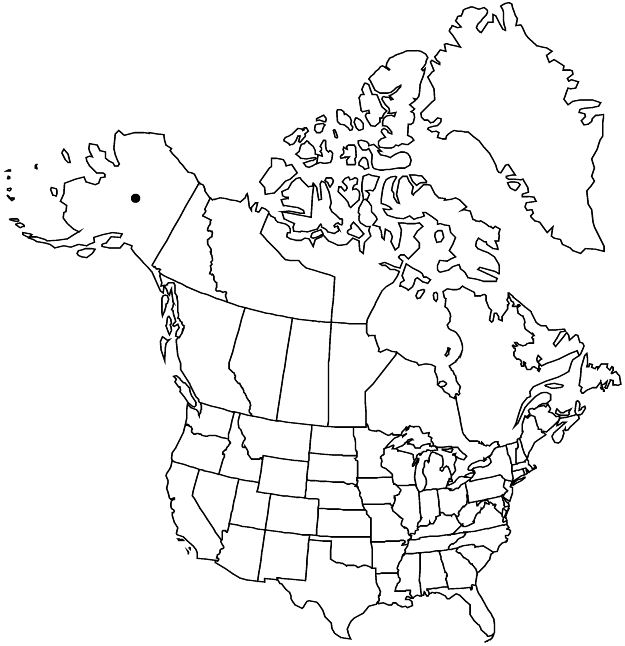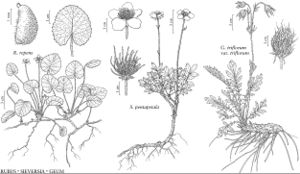Difference between revisions of "Sieversia pentapetala"
Pittonia 4: 49. 1899.
FNA>Volume Importer |
imported>Volume Importer |
||
| (One intermediate revision by the same user not shown) | |||
| Line 61: | Line 61: | ||
|publication year=1899 | |publication year=1899 | ||
|special status=Illustrated | |special status=Illustrated | ||
| − | |source xml=https:// | + | |source xml=https://bitbucket.org/aafc-mbb/fna-data-curation/src/2e0870ddd59836b60bcf96646a41e87ea5a5943a/coarse_grained_fna_xml/V9/V9_82.xml |
|subfamily=Rosaceae subfam. Rosoideae | |subfamily=Rosaceae subfam. Rosoideae | ||
|tribe=Rosaceae tribe Colurieae | |tribe=Rosaceae tribe Colurieae | ||
Latest revision as of 22:59, 5 November 2020
Leaves: stipules 2–6 mm; petiole 4–15 mm, proximally expanded and sheathing stems, sheath margins ciliate; leaflets proximally narrowly elliptic, 2–6 mm, margins entire or remotely toothed, distally obovate to rhombic, 8–12 mm, margins sharply lobed or toothed apically. Inflorescences: bracts 3-fid or linear, 6–10 mm; stipule present; petiole reduced to sheathing bases. Pedicels 2.5–8 cm, glabrate to puberulent proximally, puberulent to downy distally. Flowers erect; epicalyx bractlets sometimes 2-fid distally or divided nearly in 2, 3–4 mm; sepals 4–7 mm, margins entire; petals spreading, 7–11 mm, distinctly longer than sepals. 2n = 14.
Phenology: Flowering summer.
Habitat: Moist tundra
Elevation: 0–200[–2700] m
Distribution

Alaska, e Asia (Japan, Russian Far East).
Discussion
In North America Sieversia pentapetala is known only from the central Aleutian Islands. Japanese plants are somewhat larger overall than those of the Aleutians.
Selected References
None.
